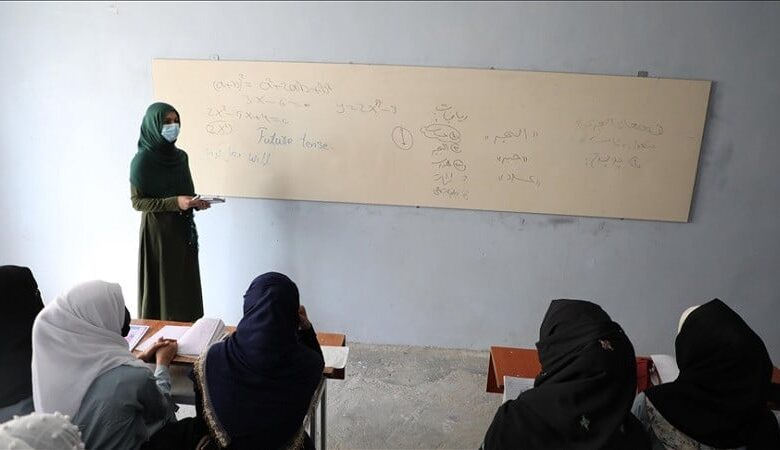HRCP urges UN to reconsider Taliban talks over ‘gender apartheid’

The Human Rights Commission of Pakistan (HRCP) has raised concerns over the United Nations (UN) led talks with the Taliban regime in Doha (Doha III), urging the UN to reconsider the decision to engage with the Taliban “until they put an end to gender apartheid” in Afghanistan.
The talks in Doha are scheduled for June 30 and July 1 and have already been criticised by different women’s groups.
“HRCP joins other rights organisations in urging you to support democratic elements in Afghanistan rather than moving closer to accepting the legitimacy of the unelected Afghan Taliban regime,” Munizae Jahangir, Co-Chairperson, HRCP, wrote in a letter (dated June 26, 2024) to the UN Security Council and Member States, Security Council Secretariat Branch.
“I write to you on behalf of the Human Rights Commission of Pakistan ahead of the third UN-convened meeting of Special Envoys and Special Representatives on Afghanistan (Doha III) on 30 June in Doha, Qatar, to urge you to reconsider your decision to engage with the Taliban regime in Afghanistan until they put an end to gender apartheid in the country and commit to protecting and fulfilling citizens’ human rights, particularly the rights of women and religious minorities,” she wrote in the letter.
The letter stated that the HRCP has observed with increasing alarm a rapid escalation in militancy and religious extremism in the Pakistani province of Khyber Pakhtunkhwa (which adjoins Afghanistan) since the fall of Kabul in August 2021.
“Based on well-documented evidence, this is attributed largely to the proscribed Tehreek-e Taliban Pakistan (TTP), which is closely associated with, and influenced by, the Afghan Taliban regime,” it said.
“The Afghan Taliban’s policy of institutionalised discrimination and violence against women in Afghanistan has emboldened the TTP and hardline clerics in Pakistan in numerous ways, leading to constant and egregious violations of women’s rights to life, security, work, education, political participation and freedom of movement,” it added.
“It is imperative that a democratic dispensation be encouraged in Afghanistan, without which the ripple effect of the present undemocratic regime will become entrenched in neighboring Pakistan,” the HRCP maintained in its letter.
“The international community must not repeat the mistakes of the past: it must demand that the Afghan Taliban regime demonstrate its commitment to fundamental rights for women and religious minorities and pave the way for a stable, inclusive and representative democracy in Afghanistan,” it urged.
Source link